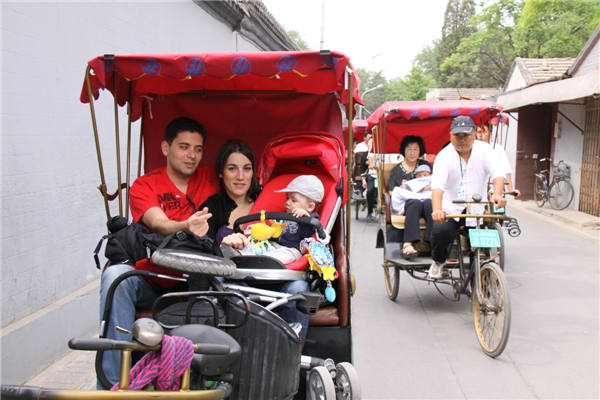 |
|
Pedro Roldao, now 5, and his Portuguese parents Renato Roldao and Ana Magalhaes ride a rickshaw through Beijing's hutong. They believe raising their son in China will help his development. Photos Provided to China Daily |
The ins and outs of growing up as third-culture kids are that they feel like both insiders and outsiders of the societies that cultivate their sense of self. Experts tell Erik Nilsson how parents can boost the boons and keep the banes at bay.
Expatriates' children belong to multiple cultures - yet not like those societies' natives.
The upside is they sail comfortably through seas of diversity. The downside can be an unanchored homeland identity.
And the third-culture kid phenomenon is growing in China, as more foreigners raise children in the world's second-largest economy.
"It gives (TCKs) the opportunity to live outside the fishbowl and realize the life that exists around the world rather than just a tight-knit community," Beijing United Family Hospital's psychological health center director Robert Blinn says.
They're more sensitive to others and more receptive to diversity, he says.
Yet many struggle to understand who they are and which culture is more important, says the doctor who works with and writes about TCK families.
Mixed Blessings: A Guide to Multicultural and Multiethnic Relationships' co-author and counselor Harriet Cannon explains: "Some TCKs grow up to be citizens of the world with never-vanishing wanderlust. Some choose a place and plant roots because they didn't have them growing up. And some, especially those who lived in emerging economies, are more prone to struggle with identity problems and depression."
